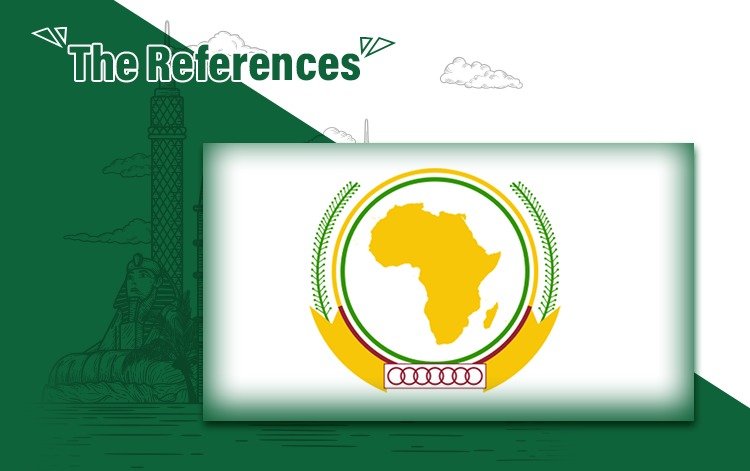African Youth Charter

African Union has developed a policy framework in the form of the African Youth Charter, which was adopted by heads of state and government at the summit held in Banjul, Gambia in July 2006, as the first-ever legal document determines the responsibilities of member states in youth development and drawing up an international framework that determines only the rights, duties, and freedoms of youth and paves the way to drawing up national programs and strategic plans in order to strenghten them.
The African Youth Charter set up to ensure the effective and constructive participation of youth in formulating Africa’s agenda and their participation in decision-making processes regarding the development of the continent. They are a mandatory prerequisite and a source of strength for achieving sustainable development, peace, and security in Africa. The Charter also draw up a framework in front of decision makers to empower youth and integrate their issues into the overall policies and programmers adopted by the State at the national and continental levels.
The Charter stresses the importance of encouraging international cooperation in the production, exchange, and dissemination of information from national and international sources of economic, social, and cultural value for youth, and encouraging them to lead development programs, to ensure the exercise of their right to citizenship, decision-making, governance and leadership so that they develop technical skills and confidence to participate in these processes and the movement is relied on the Charter's many articles, to name a few:
Article No (10) is assigned to development, which states that member states encourage youth organizations to lead youth programs and ensure the exercise of their right to development, in addition to providing information, education, and training for youth to know their rights and responsibilities within the framework of democratic educational processes, as well as the right to citizenship, decision-making, governance and leadership in order to allow them to develop technical skills and confidence in participating in these movements.
And Article No. (11) of the Charter stipulates that member states undertake action to enhancement the active participation of youth in society, and to facilitate the establishment or strengthening of platforms for youth participation in decision-making at the national, regional, and continental levels of governance.
As well as taking necessary measures to professionalize youth work and introduce relevant training programs in higher education and other training institutions.
It is worth mentioning paragraph (h) of the same article, which stipulates the development of voluntary work policies and programs for youth at the local, regional, and international levels as an important form of youth participation and as a means of mutual training between parties. This showed its impact on the Nasser Youth Movement as a model and director of the outputs of the first batch.
Article (12) stipulated a national youth policy and the youth's point of view should be integrated into all planning and decision-making processes, as well as when setting programs. The appointment of competent authorities for youth within government bodies facilitates this process, in addition to obligating the policy to ensure equal opportunities for young men and women.
The Charter also emphasized in article no. (13) regarding education and skills development, the importance of enhancing the value of multiple forms of education, including formal and informal education, distance education, and life-long learning to meet the diverse requirements of young people, In addition to preserving and promoting moral teachings, traditional values, and positive African cultures, and developing and cherishing African and national identity at the national and African levels.
The Charter also stipulated in article no. (15) in the fourth paragraph that the adoption of national programs for youth service to achieve community participation and develop skills to join the labor market, which is what the Nasser sought by to activate the 2021 African Union initiative to prepare one million young people for leadership.
The same article also emphasizes the provide multiple points to get access to education and skills development, including opportunities outside formal educational institutions such as skills development in the workplace, distance education, adult literacy, and national youth service programs.
As for article (20) with regard to youth and culture, It stipulated that work with educational institutions, youth organizations, the media and other partners to increase youth awareness, education and awareness of authentic African culture, values, and knowledge.
And enhancing joint cultural awareness through exchange programs between youth and youth organizations within and between member states, as well as involvement youth and youth organizations in understanding the connection between contemporary youth culture and traditional African culture and enabling them to express this fusion through arts, theater, writing, music, and other cultural and artistic forms.
It stipulates working with youth organizations and the media to increase youth awareness, education and awareness of authentic African culture, values, and knowledge, as well as enhancing joint cultural awareness through exchange programs between youth and youth organizations within and between member states.
Article (23) affirms the right of girls and young women and ensures that they can participate actively, on an equal and effective basis with males, at all levels of social, educational, economic, political, and cultural leadership, as well as in civic life and scientific endeavors.
Finally, the African Youth Charter also determines the responsibilities of young people towards their development, violence prevention, peace building and the development of their societies and the entire continent. Those rights stipulated in the Charter are matched by responsibilities for young people towards themselves and the progress of their countries as a whole.
